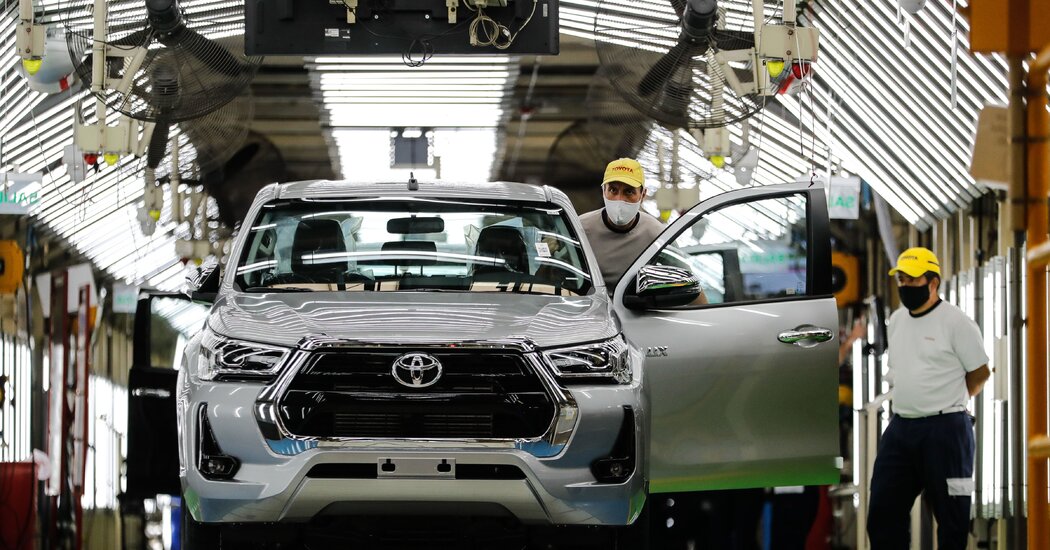
Automakers are also contending with the transition to electric cars and trucks. Many companies are spending tens of billions of dollars designing battery-powered models and building plants to produce them. They are racing to catch up to Tesla, which sells a large majority of electric vehicles now.
But most established automakers are unlikely to gain ground in U.S. electric vehicle sales this year because they are not in a position to produce many tens of thousands of such cars for at least another year or two.
Jan. 5, 2022, 12:23 a.m. ET
And Tesla, which was founded in 2003, is not standing still. After reporting a nearly 90 percent jump in global sales last year, to just shy of one million, the company plans to start mass production at two new factories this year, near Austin, Texas, and Berlin. It has been less affected by the chip shortage because it was able to switch to types of chips that are more readily available.
The electric-car maker does not break out sales by country, but Cox Automotive estimated that it sold more than 330,000 in the United States, or roughly as many vehicles as Mercedes-Benz and BMW each sold here.
Ford is perhaps the only major automaker that could pose a serious competitive threat to Tesla this year. This spring, Ford plans to start selling an electric version of its F-150 pickup truck, the top-selling vehicle in the United States. The company has taken more than 200,000 reservations for that truck, the F-150 Lightning, and hopes to produce more than 50,000 this year. It is increasing production at a plant near Detroit to build 80,000 in 2023 and up to 150,000 in 2024.
“The F-150 is the most important franchise in our company,” Kumar Galhotra, president of Ford’s Americas and international markets group, said in an interview. “The F-150 Lightning shows how serious our commitment is to the E.V. market.”
Ford has been selling a popular electric sport-utility vehicle, the Mustang Mach E, for nearly a year. It said Tuesday that it aimed to increase production of the Mach E to 200,000 vehicles a year by 2023.







